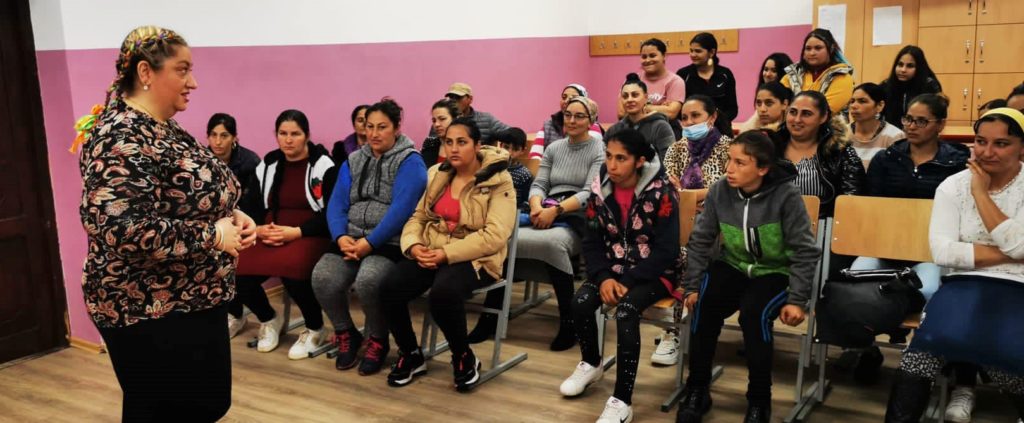Five schools with a high percentage of Roma children joined forces with the European Wergeland Centre to create a more inclusive school environment for Roma students in the country side outside Satu Mare in Romania.

“This project was a small miracle. It brought international trainers to the Romanian country side and gave teachers new tools to make changes in the classroom and school community”, says Anca Potra, School Director at Scoala Gimnaziala Doba.
60 teachers and school directors were trained by the EWC team of trainers. They learned about the whole-school approach, which involves all members of the school, including management, staff, students, parents, and the broader community. Employing the whole-school approach, educators can incorporate democratic values and human rights principles into teaching, learning, and school governance.
A highlight was a joint meeting for Roma parents and children. Ramiza Sakip, EWC trainer of Roma background, engaged the audience with a discussion of the importance of education, encouraged active parental involvement in the educational journey of the children, and emphasized the transformative impact of education on the lives of Roma individuals and their communities.
“In order to increase parents’ involvement, we organized a project bringing the parents of Roma and non-Roma students together. When the parents see that the schools have teachers who care about their children, their commitment to sending their children to school increase”, says Potra.
The project was called “School for All, All for School” and it was the first time that schools joined forces to learn together in that part of Romania. Codruta Lucia Hiripan was the project manager.
“Today the teachers organize inclusive activities for the children every day. This makes great changes for the children”, she says. “Our schools have made great progress in moving towards a more inclusive education, but society and parents are lagging behind. The whole school approach helps to get everyone onboard”, says Hiripan.
At EWC, we work on strengthening the capacity of educators to create inclusive classrooms, teaching culture and history in a way that incorporates democratic competences. In 2023, our numerous projects engaged teachers and teacher trainers, as well as educational agencies, museums, municipalities and schools from Bulgaria, Czech Republic, Slovakia, Romania and Norway. The projects were financed through the EEA and Norway Grants. Particular focus was on Europe’s Roma communities. The Roma people constitute the largest ethnic minority in Europe, with eight out of ten living below the national poverty line and facing obstacles such as segregation, gender disparity, and academic underachievement, among others.